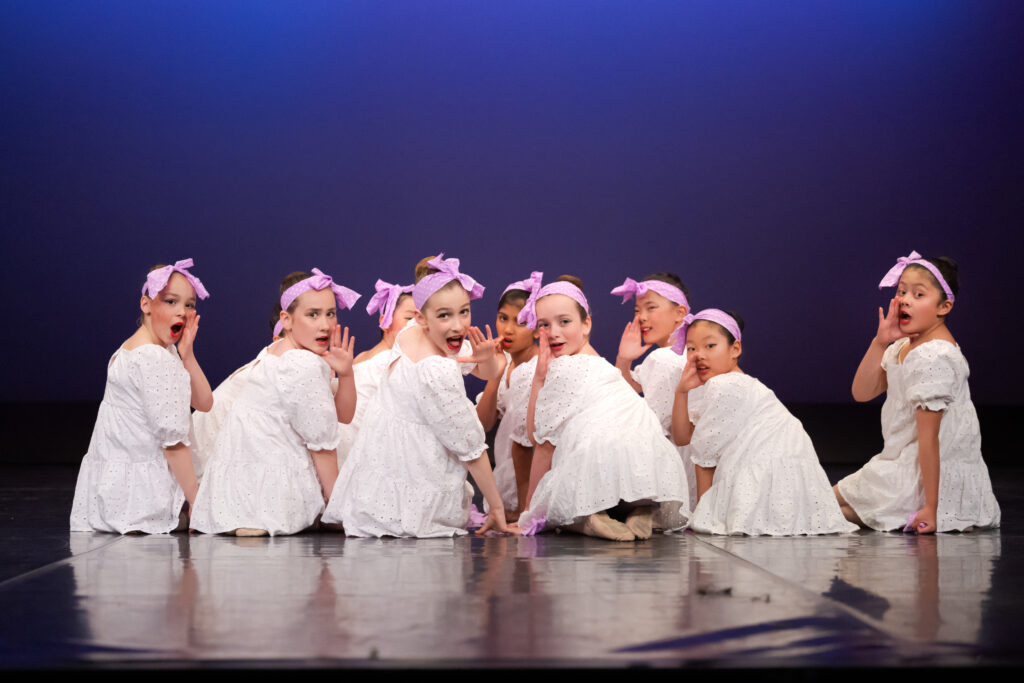September 1, 2025
Dance lessons provide children with an enjoyable way to develop creativity while staying physically active and improving coordination. Alongside physical benefits, participation helps build confidence, encourages social skills, and teaches discipline, all of which support a child's overall development with dance lessons. Enrolling in dance offers opportunities that reach far beyond the classroom.
Parents experience valuable advantages through their child's involvement in dance classes, such as a more organised family routine and moments to recharge. Watching a child grow in skill and confidence often brings feelings of pride and happiness. This blog explores how dance lessons create benefits for both children and parents, making them a worthwhile choice for families.
Building Structure in Family Schedules
Regular dance classes create a dependable rhythm in weekly routines, helping families manage busy days with more ease and confidence. Parents can organise school runs, meal preparation, and homework around fixed lesson times, which brings a sense of order to otherwise hectic schedules. Over time, those consistent commitments support smoother transitions between activities and reduce the stress caused by last-minute planning.
Families begin to anticipate and prepare for dance days well in advance, allowing children to become more responsible for their belongings and timing. When everyone knows what to expect, household chaos diminishes and positive habits start to take root naturally. The regularity that dance lessons bring often extends into other parts of family life, helping children and parents alike feel more grounded.
Having clear, predictable time slots for dance allows parents to coordinate other commitments more effectively and frees up mental space to focus on quality family moments. Knowing that lessons happen on set days helps reduce uncertainty, making it easier to prioritise both fun and responsibilities. This structure encourages a calm and organised household atmosphere where everyone benefits.
Encouraging Independence in Children with Dance Lessons
Children attending dance lessons quickly learn to take responsibility for packing their bags, remembering shoes, and preparing costumes, which builds essential organisational skills. Developing these habits encourages a growing sense of self-reliance, helping children feel capable and ready to meet challenges without constant reminders. Those small acts of independence reinforce confidence and contribute positively to their overall development.
Parents notice that children become more proactive about managing their belongings and planning their time as lessons continue, which eases parental workload. When children master these tasks, they are more likely to transfer those skills to other areas, such as homework or personal hygiene. That sense of ownership nurtures a healthy sense of maturity that benefits the whole family dynamic.
As children embrace responsibility in dance, they begin to trust themselves and take pride in their accomplishments, which motivates further independence. Parental encouragement during this growth phase boosts self-esteem and reinforces positive behaviour. These early lessons in accountability provide a foundation for future success in school and social settings.
Time for Parents to Recharge
Parents often find that the time their child spends at dance class becomes a valuable opportunity to rest, reflect, or pursue personal interests away from daily demands. Having a scheduled period to focus on themselves provides mental and emotional relief, allowing parents to return to their caregiving role feeling refreshed and balanced. Such moments of downtime contribute significantly to reducing stress and enhancing overall well-being.
Finding space to read, meet friends, or enjoy quiet time helps restore energy levels that might otherwise be depleted by constant multitasking. When parents care for themselves in these intervals, they set a positive example of self-respect and balance for their children. This personal recharge supports a healthier family atmosphere where both parent and child thrive.
Consistent breaks from parenting duties help sustain patience and kindness throughout the day, making interactions with children more positive. Those periods allow parents to pursue passions or responsibilities that might otherwise be neglected. Over time, carving out personal time strengthens resilience and improves overall life satisfaction.
Opportunities to Connect with Other Parents Through Dance Lessons
Dance studios often become places where parents share experiences, give advice, and make friends with others who have similar interests. Talking while waiting or at events helps build social connections beyond lessons. Many parents find comfort and support through shared experiences, making the dance community feel like an extended family.
Those relationships often evolve into practical collaborations such as arranging carpools or organising playdates, which lighten the logistical load on busy families. Meeting others who understand similar challenges helps reduce feelings of isolation and builds a network of encouragement. The social bonds formed at dance classes enhance not only parents' social lives but also children's support systems.
Engagement with other families promotes a sense of belonging and mutual respect, benefiting everyone involved. Such connections create a foundation of trust and camaraderie that reaches beyond dance studio walls. Through friendship and shared purpose, parents gain support and friendships that enrich family life.
Joy of Watching Your Child Perform
Watching your child perform on stage makes parents very happy and proud. It shows how much your child has grown and how hard they have worked. Every performance shows new skills they have learned and the bravery they have shown by trying something new. These moments become special memories that bring parents and children closer.
Applause and praise show children that their hard work is noticed, motivating them to keep improving and feel more confident. Parents watch how their encouragement helps children stay strong and creative, growing closer to the dance experience. Performing together creates happy family memories that everyone will remember for a long time.
Being there for important moments lets parents celebrate progress and encourage children to keep trying. It helps children feel proud and know their efforts matter. Doing things together also brings parents and children closer.
Positive Impact on Behaviour at Home
Discipline learned in dance classes often helps at home, making daily routines calmer and children more cooperative. Listening to instructions, practising patience, and following rules in a structured environment teach children useful behaviour skills. Many parents notice their children become more attentive and willing to follow household rules as a result.
Children develop stronger focus and impulse control through repeated practice and feedback in lessons, which can reduce conflict at home. The consistency and structure offered by dance encourage positive habits that help parents manage daily tasks more easily. Improved behaviour at home contributes to a more peaceful and enjoyable family environment.
Seeing children apply lessons from dance to real-life situations provides reassurance and satisfaction for parents. Those behavioural improvements ease tensions and promote harmony within the household. The positive effects ripple through everyday family interactions, benefiting everyone.
Supporting Health and Well-being for the Family
Regular dance classes provide children with vigorous physical activity that builds strength, coordination and cardiovascular fitness enjoyably. Parents often feel motivated to improve their own fitness by witnessing their child's enthusiasm and progress. Families may adopt healthier lifestyles together, influenced by the energy and habits dance encourages.
Physical activity not only supports physical health but also benefits mental well-being, reducing anxiety and increasing confidence in both children and adults. Participating in or attending dance lessons creates opportunities for families to prioritise movement and balanced living. The presence of active children inspires parents to model healthy choices and make exercise a shared value.
A household that embraces fitness and well-being tends to experience greater vitality and happiness overall. Dance becomes a catalyst for family health improvements that extend well beyond the studio. Encouraging active habits early helps set the stage for lifelong wellness for all family members.
Building Long-Term Skills and Values via Dance Lessons
Dance teaches children important skills like persistence, teamwork, and self-discipline that help them succeed in life. Facing challenges and trying to improve shows them how to be patient and strong. Parents watch their children grow a positive attitude that will help in school and future jobs.
Children learn the importance of practice and dedication as they progress, understanding that achievements come through effort and consistency. Working collaboratively in group settings fosters communication and respect, which translates to positive social skills. Observing this personal growth reassures parents that dance is nurturing well-rounded individuals.
The long-term values instilled by dance support academic, personal and social achievements, creating a foundation for future fulfilment. Children who experience these lessons tend to approach new challenges with confidence and determination. These benefits make dance a worthwhile investment beyond the immediate physical or artistic gains.
Strengthening Parent-Child Relationships with Dance Lessons
Sharing dance lessons and performances helps parents and children feel closer. Talking about progress, problems, and goals gives chances to support each other. Going to classes and events together builds teamwork and partnership in the family.
Praising children when they do well and encouraging them to keep going helps build trust and respect. It makes them feel important and understood. Spending time together creates happy memories that bring parents and children closer. Showing interest in what a child likes shows you care and helps build a strong, loving relationship.
The shared journey through dance gives many chances to connect and grow. Parents feel closer to their children as they watch and help them develop. Dance becomes a link that brings family members together through experience, support, and pride.
Growing Confidence Through Dance Lessons
Dance lessons offer more than just movement; they help children build confidence, resilience, and a sense of achievement. As children learn new skills and perform, they become more self-assured and independent. Parents find it deeply rewarding to witness this growth and know their child is developing valuable life skills.
The benefits of dance reach beyond the child and enhance the entire family experience. Parents enjoy structured routines, personal time, and a stronger connection with a like-minded community. Enrol your child at Wellington Dance Academy and enjoy the shared joy of growing confidence through dance classes.

